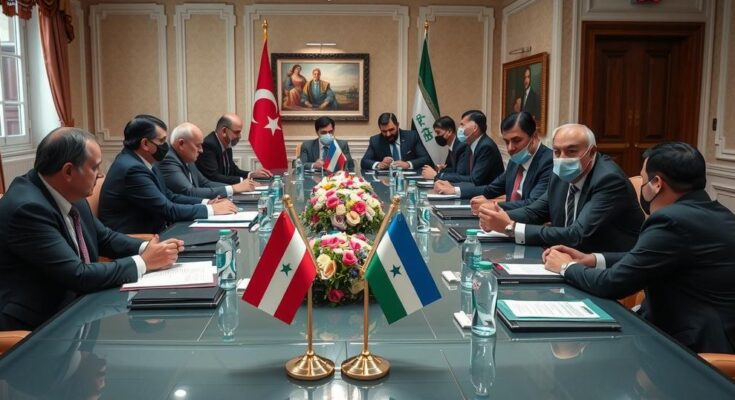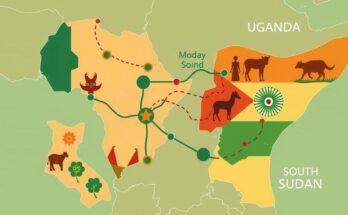Diplomats from the U.S., Turkey, EU, and Arab nations convened in Jordan to discuss Syria’s post-Assad future. Key topics included governance and minority rights, with Turkey signaling its role in the diplomatic process. The U.S. aims to navigate complex regional dynamics, particularly involving Kurd-led forces, as tensions persist. The absence of Russia and Iran from the talks underscores shifting alliances.
In Aqaba, Jordan, key diplomats from the United States, Turkey, the European Union, and multiple Arab countries convened to discuss the future political landscape of Syria following the ousting of President Bashar Assad. The meeting aimed to establish a framework for political transition, with an emphasis on the protection of minority rights and a unified Syrian state. Notably absent were representatives from Russia and Iran, Assad’s main allies, highlighting the shifting alliances in the ongoing conflict.
During Secretary of State Antony Blinken’s visit, he engaged with regional leaders to foster support for a collaborative and inclusive political process in Syria. There are conflicting interests, particularly between the U.S. and Turkey regarding militant groups within Syria, particularly the Syrian Democratic Forces (SDF), which are viewed by Turkey as an extension of its domestic Kurdish insurgency. This complex dynamic underscores the challenges faced by regional actors in influencing Syria’s future governance and stability.
Turkey, having supported opposition forces against Assad for years, announced the reopening of its embassy in Damascus, indicating its intent to play a critical role in Syria’s future. Turkish Foreign Minister Hakan Fidan reiterated this commitment, emphasizing the importance of a political solution that discourages sectarian division within Syria.
Diplomatic efforts are bolstered by the recognition that the situation in Syria presents both significant opportunities and substantial challenges, as articulated by Blinken and other foreign ministers present during the discussions. This gathering underscores a collective resolve among regional powers to seek a harmonious resolution to the protracted crisis in Syria, aiming for stability and unity amidst ongoing tensions and conflicts among various factions.
The Syrian civil war, which began in 2011, has resulted in significant geopolitical shifts and complex dynamics among regional and global powers seeking to influence Syria’s political future. With Assad’s regime facing challenges from both domestic opposition and foreign interests, various actors, including the U.S., Turkey, and Arab nations, have engaged in diplomatic negotiations to establish a framework for post-Assad governance. The absence of representatives from Russia and Iran during these discussions highlights a potential realignment of alliances as external powers reassess their positions.
The recent diplomatic meeting in Jordan signifies a pivotal moment as key international players rally to shape Syria’s future in the wake of ongoing turmoil. Emphasizing inclusive governance while navigating conflicting interests amid various militant groups will be crucial as these nations work collaboratively toward a stable political transition. The complexities of regional geopolitics, particularly concerning U.S.-Turkey relations and the role of Kurdish forces, remain integral to the discourse surrounding Syria’s path forward.
Original Source: www.arabnews.com




